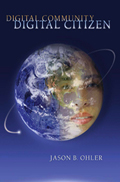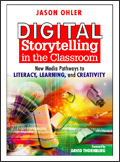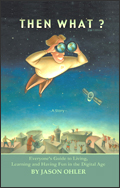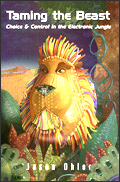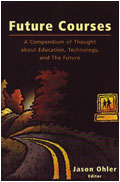subTechst comes out three times a year: fall, winter, spring.
subTechst column, fall 2008. This fall’s column is out and is titled, “Web 3.0 - The Semantic Web Cometh- What Happens When the Read-Write Web Begins to Think?
Article overview
Make no mistake. Web 2.0, as important as it is, will seem like a minor plateau on the journey to the Semantic Web, also known as Web 3.0.
From info tease to overload. The Semantic Web will do many things. But above all it will address one of the most important question on the minds of the cyber savvy, summarized by the following quote by Credo, from Then What?
What happens when we ask a simple question and get so much information that we can’t sort through it, let alone evaluate its trustworthiness?The illusion of knowledge. After all, if you are like most people, when you condu
(from Then What? Everyone's Guide to Living, Learning and Having Fun in the Digital Age)
 ct a Google search you get a gazillion hits and read the first ten. You walk away with the illusion of knowing something. This is at least ineffective and potentially very dangerous.
ct a Google search you get a gazillion hits and read the first ten. You walk away with the illusion of knowing something. This is at least ineffective and potentially very dangerous.Producing reports, rather than finding pages. In one vision of a well-developed semantic web, a search returns a multimedia report rather than a list of hits. The report draws from many sources, including websites, articles, book chapters, blog dialogue, YouTube presentations, cell phone memory, virtual reality resources—anything that is accessible by the rules of Web 3.0. The information in the report – which may be very wiki-like in structure - would be compared, collated and synthesized in a basic way, presenting points of agreement and disagreement, and perhaps evaluating these in light of political positions or contrasting research. The information would also be personalized, alerting us to personal and even local resources based on our profiles.
More time participating rather than searching. Ideally, the Semantic Web reduces the amount of time we spend searching and sifting so that we can spend more time thinking and participating.
Web 3.0 is a truly unique development. For the first time in the history of educational technology in the digital age, we can see a foundational change far enough in advance to actually plan for it. We can actually help direct Web 3.0 in advance of its arrival.
Download the article. Want to know more? Download the article, Web 3.0 - The Semantic Web Cometh- What Happens When the Read-Write Web Begins to Think?
Pass it on. Feel free to publish this article in whole or in part, and pass it on to anyone else to do the same.
Spread the word: The Semantic Web Cometh.

